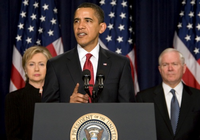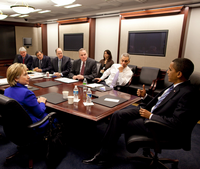
Historic treaty ushers in long-anticipated era of U.S. southward expansion. AUSTIN, Texas — Meeting in the New Texas statehouse on the 195th anniversary of Texas’ declaration of independence from Mexico, official representatives from the Tejas Confederation, the Northern Alliance of Mexican States, and the United States government signed a comprehensive treaty that will immediately “re-admit” the Tejas states of El Norte and Gulfland to the American union, and submit to Congress formal pleas for new statehood on behalf of all five Northern Alliance members — Baja California, Sonora, Chihuahua, Coahuila and Nuevo Leon. If all Alliance members are ultimately accepted […]








